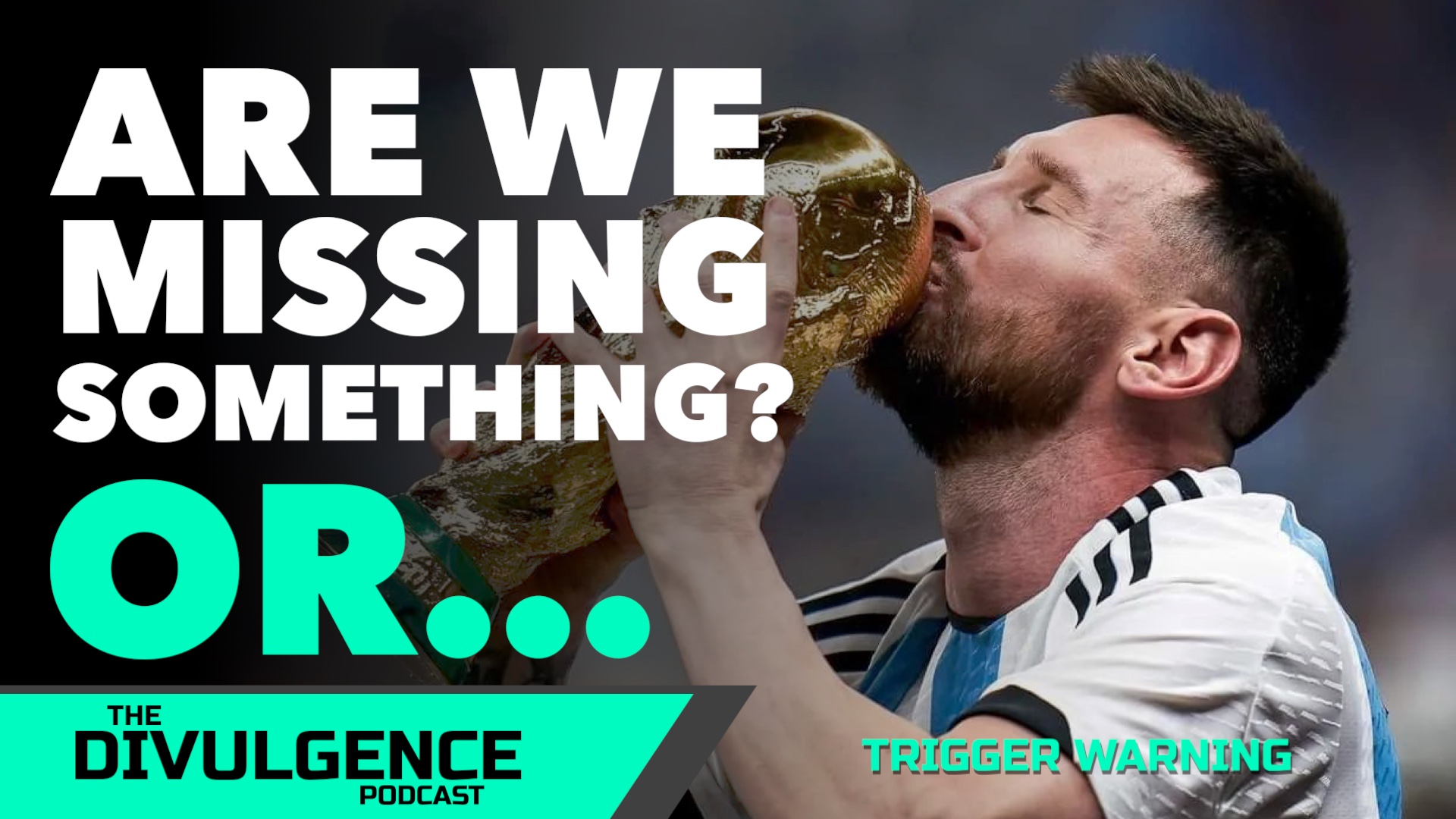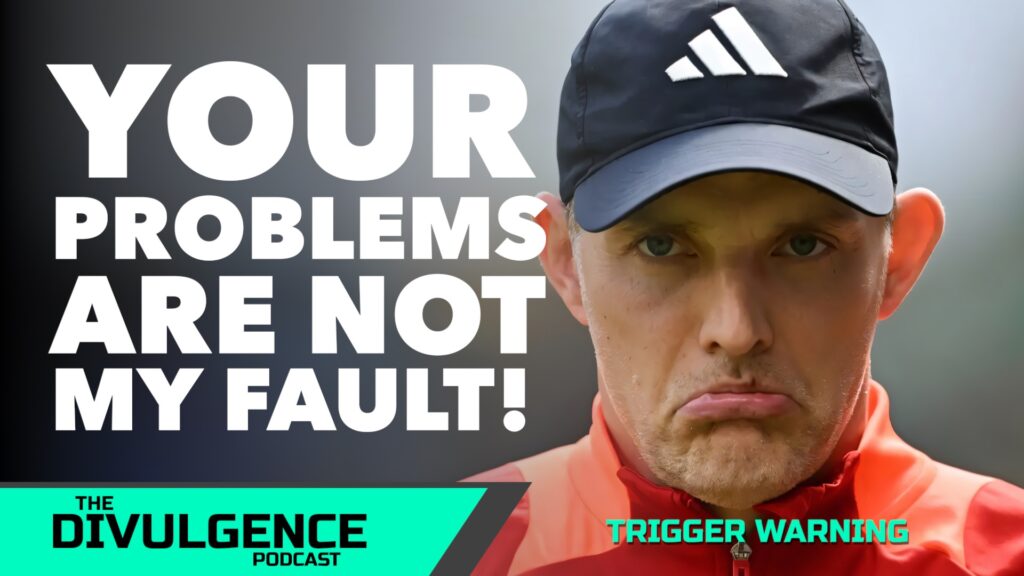When you think of soccer greatness, the name Lionel Messi almost instantly comes to mind. For over a decade, Messi has dazzled fans with his seemingly effortless dribbling, pinpoint accuracy, and record-breaking performances. He’s collected trophies like a magnet, with a cabinet full of Ballon d’Ors, league titles, and, most recently, a long-awaited World Cup victory.
Yet, when we strip away the statistics, the medals, and the adoration, and look deeper, does Messi still stand out as the greatest? Or are there other players—taller, stronger, more powerful—who possess a skill set that makes them better suited to the title of “The Greatest”? Could it be that we’re just mesmerised by Messi’s brilliance because of his unique style and his shorter stature, which makes his accomplishments seem more impressive?
To answer these questions, we need to dig into the very essence of what makes a soccer player truly great. It goes beyond the obvious and into the realms of intellect, emotion, and physicality. This article will explore Messi’s qualities, compare him with other legends, and look at the future of soccer greatness. The aim isn’t just to praise or criticise but to provoke thought and question assumptions.
The Messi Magic: What Makes Him Stand Out?
It’s no secret that Lionel Messi is a phenomenal soccer player. But what exactly makes him so special? If we break down his qualities, we can see three distinct aspects: his intellectual understanding of the game, his emotional resilience, and his physical abilities.
1. Intellectual Brilliance on the Field
Messi’s brain is arguably his most powerful asset. He sees the field like a chessboard, predicting opponents’ moves with almost supernatural awareness. His decision-making is often instantaneous and yet consistently correct. Whether he’s threading a needle-like pass through a crowded defence or spotting a shooting opportunity that others might miss, his ability to read the game is unparalleled.
Other players may have the speed or power, but how often do they make the right decision? Messi’s intelligence allows him to appear in the right place at the right time, not just because of his physical capabilities but because he understands the game’s dynamics better than anyone.
2. Emotional Composure and Resilience
In high-pressure situations, Messi remains calm. It doesn’t matter if it’s the final minutes of a tense Champions League knockout game or a World Cup penalty shootout. While other players might succumb to the weight of the moment, Messi is often at his best when the stakes are highest. His resilience is remarkable, too—bouncing back from setbacks like national team disappointments to reach new heights in his career.
3. Physical Limitations or Advantages?
At 5’7″ (170 cm), Messi doesn’t have the towering presence of some other soccer greats. In fact, some might argue that his height is a disadvantage, especially when competing for headers or using physicality to ward off stronger defenders. Yet, Messi’s shorter stature allows for a low centre of gravity, making his dribbling more effective and enabling rapid changes in direction that taller players might struggle with.
Moreover, his acceleration from a standing position is otherworldly. He may not be the fastest in a 100-meter sprint, but his quick bursts of speed are often enough to leave defenders chasing shadows.
Legends of the Past and Present: How Do They Stack Up?
To truly assess Messi’s place in the history of soccer, we must compare him to the other giants of the game. There are some obvious names in this debate—Pele, Diego Maradona, Cristiano Ronaldo, Johan Cruyff, and even more contemporary players like Kylian Mbappe and Erling Haaland. Each of these players has their own unique qualities, and when lined up against Messi, they reveal a lot about what makes “the best” truly the best.
1. Pele: The King of Soccer
Pele is often cited as the greatest soccer player of all time, primarily because of his three World Cup victories and his goal-scoring prowess. At 6 feet tall, Pele was stronger and more physically imposing than Messi, yet he also possessed a similar kind of finesse. His impact on the sport is undeniable—he was a global icon long before Messi.
But does being the first to achieve greatness make you the best? Some argue that while Pele was brilliant, he played in an era where defenders were slower and tactics were less sophisticated. Would he have achieved the same success if he were playing today?
2. Diego Maradona: The Artist and the Rebel
Like Messi, Maradona was a small, stocky player with a low centre of gravity. His dribbling ability was mesmerizing, as was his flair for the dramatic. Maradona’s “Hand of God” goal and his solo run against England in the 1986 World Cup quarter-final are still two of the most iconic moments in soccer history.
Yet, Maradona’s career was marred by controversies, drug abuse, and inconsistency. He reached the highest of highs, but his lows were lower than anything Messi has experienced. Some argue that Maradona’s personality, which was both a blessing and a curse, prevented him from reaching the same level of sustained greatness that Messi has.
3. Cristiano Ronaldo: The Perfect Athlete
If there’s anyone who can challenge Messi’s claim to the throne, it’s Cristiano Ronaldo. Ronaldo is taller (6’2″), stronger, and possibly even faster. He’s a more complete physical specimen, a player who seems engineered to be the perfect soccer athlete. His powerful headers, explosive speed, and incredible fitness give him an edge in situations where Messi’s smaller frame might fall short.
Ronaldo’s style is based on power, while Messi’s is based on finesse. It’s like comparing a hammer to a scalpel. Ronaldo has accomplished nearly everything Messi has, often in similar time frames. But when it comes to sheer artistry on the pitch, Messi might still have the upper hand. Ronaldo’s approach is more straightforward, whereas Messi’s dribbling and passing often defy conventional soccer logic.
4. Modern Rivals: Kylian Mbappe and Erling Haaland
Kylian Mbappe and Erling Haaland represent the future of soccer, bringing their own mix of speed, power, and skill. Both players are taller and stronger than Messi, yet neither possesses his level of finesse and soccer IQ at this stage of their careers.
It’s worth asking whether the future of soccer lies in Messi’s style or in a more physically dominant approach. Mbappe’s rapid acceleration and Haaland’s raw power are reminiscent of Ronaldo rather than Messi. If the future belongs to these types of athletes, does that mean Messi’s era is ending, or will there always be a place for the kind of magic he brings?
The Physical Debate: Is Bigger Always Better?
Some argue that Messi’s achievements are even more remarkable because he isn’t a towering giant on the pitch. But should we equate size with greatness? Players like Zlatan Ibrahimovic, who stands at 6’5″, have dominated defences with their physicality, yet they haven’t reached the same legendary status as Messi or Ronaldo.
In modern soccer, where players are increasingly expected to be physically dominant, Messi’s continued success is an outlier. His physique is often seen as a limitation, but perhaps it’s also his greatest strength. While bigger players rely on power, Messi relies on agility, balance, and technical skill to overcome opponents.
However, the question remains: if soccer continues to evolve in favor of more physically dominant players, will someone like Messi be able to succeed in the same way in the future?
The Emotional Factor: Handling the Pressure
It’s easy to look at Messi’s calm demeanour and label him as emotionally detached, but that would be a mistake. The truth is, Messi’s quiet nature might be his greatest emotional asset. Unlike players who thrive on hype or drama, Messi’s focus allows him to stay grounded.
But not everyone sees it that way. Some critics argue that Messi lacks the “fire” of a Maradona or a Ronaldo. They point out his lack of celebrations after goals or his quiet nature in interviews as signs of a less passionate player. Yet, passion doesn’t always have to be loud; sometimes, it manifests in an unwavering commitment to the craft. Messi’s discipline and focus might just be his way of showing that passion.
Intellectual Greatness: Is Messi the Smartest Player Ever?
When discussing soccer intelligence, players like Andrea Pirlo, Xavi, and Zinedine Zidane often come up. Their ability to dictate the pace of a game and make intelligent decisions was part of what made them great. But Messi’s intelligence goes beyond simple playmaking.
Messi’s spatial awareness is perhaps his most underrated skill. He has an almost sixth sense for knowing where his teammates are and where defenders will move next. It’s as if he can see the game unfold two steps ahead. This soccer IQ is not just a product of practice; it’s an innate ability that allows him to make decisions others wouldn’t even consider.
But is being the smartest player on the pitch the same as being the best? There are players with greater tactical intelligence who may not have Messi’s skill but could arguably be more influential in shaping the outcome of a game. Could we say that Messi’s soccer IQ, while elite, is not as revolutionary as some others?
What Does This Mean for the Future of Soccer?
If Messi is indeed the greatest player ever, what does that mean for the future of the sport? Will young players aspire to be the next Messi, or will they aim to emulate the physical prowess of Ronaldo or Haaland?
The current trend in soccer leans towards physical attributes—speed, strength, and endurance—often overshadowing pure skill and intelligence. Young players are being scouted and developed with these
traits in mind, suggesting that the sport may continue to shift away from the artistry embodied by Messi.
Yet, if Messi’s continued success proves anything, it’s that there will always be room for the player who can think faster, react better, and outsmart the opposition. As soccer evolves, the debate will rage on about whether the future belongs to the powerful athletes or the intelligent magicians.
Conclusion: The Never-Ending Debate
So, is Lionel Messi the greatest soccer player of all time? It’s a question that can’t be answered definitively, not because there isn’t enough evidence, but because greatness is subjective. If you value intelligence, artistry, and skill above all else, Messi might just be your pick. But if you see soccer as a physical contest, where power and speed dominate, then players like Ronaldo, Haaland, or even future stars may take the crown.
Ultimately, Messi’s greatness doesn’t lie in proving that he’s better than everyone else. It lies in making us question what greatness truly means. If nothing else, that makes him one of the most important soccer players ever, and perhaps, in its own way, that’s even more significant than being the “best.”
The debate won’t end anytime soon, and that’s a good thing. Because as long as we’re discussing, comparing, and questioning, soccer continues to grow richer as a sport. Whether or not Messi is the greatest, his contribution to the beautiful game is undeniably colossal, and that’s something no one can take away from him.




